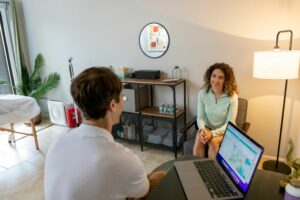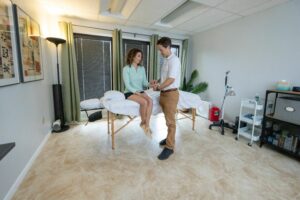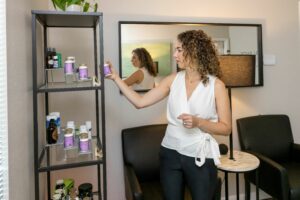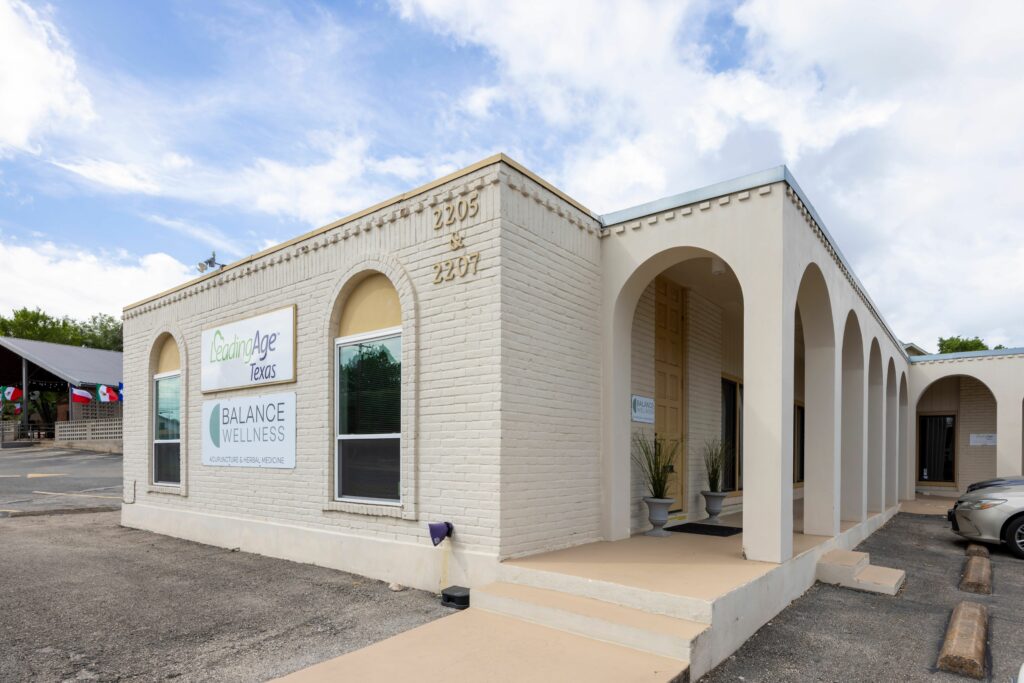Frequently Asked Questions
Great questions! Short answer is… it depends 😉
In general, someone who is relatively young and in good overall health is going to get better much faster than someone who has a more complex, chronic condition, or who has several other health conditions.
The cost to you will also depend – on your insurance, and which available discounts we are able to use for you.
The easiest way for us to give you an idea of cost and number of treatments is to schedule a free 15-minute consultation here. This appointment may be done over the phone or in-person at our clinic.
TCM is a complete and comprehensive medicine that has been effectively used by millions of people for more than 3000 years. TCM theory views the human body as a holistic system: in order for the whole system to be in balance and healthy, each smaller system within it must also be balanced.
A practitioner of Chinese medicine is trained to identify areas of imbalance in the body and can help rebalance these areas using a combination of strategies including acupuncture, herbal medicine, cupping, gua sha, Asian bodywork, moxibustion, nutrition therapy, lifestyle modifications and mind-body exercises such as qigong & tai chi.
While conventional Western medicine is considered the gold standard for acute or emergency health care situations, TCM approaches can be most beneficial in treating chronic conditions, pain conditions, as well as more generalized issues that are not easily or effectively treated pharmaceutically or surgically (e.g. stress, anxiety, insomnia, autoimmune conditions, allergies, etc.)
A LAc. in the state of Texas is someone that has earned at minimum a 3-4 year Master’s degree from an accredited acupuncture school and has passed 4 national board exams covering the topics of Foundations of Oriental Medicine, Acupuncture, Chinese Herbology and Biomedicine. LAc.’s receive training in all of the common TCM techniques (see above) as well as classroom and hands-on education on how to integrate the traditional use of these techniques with modern medicine.
 Integrative Medicine is the practice of using the most appropriate interventions from many disciplines to meet the individual needs of the patient. Integrative medicine strives to put the patient at the center and consider all factors that influence health and disease, including mind, body & spirit.
Integrative Medicine is the practice of using the most appropriate interventions from many disciplines to meet the individual needs of the patient. Integrative medicine strives to put the patient at the center and consider all factors that influence health and disease, including mind, body & spirit.
Acupuncture is the practice of inserting sterilized, single-use needles (that are often as fine as a human hair) into specific acupuncture points on the body in order to relieve pain or rebalance the body’s nervous and endocrine (hormone) systems. Depending on the technique, acupuncture can release muscles (dry needling / trigger point needling), calm an overactive nervous system, or redirect blood flow to different parts of the body.
By helping the body rebalance and unblocking areas of stagnation, circulation improves allowing oxygen, hormones, and other nutrients to get to the target tissue and inflammatory waste products to move out.
More research is being conducted every year demonstrating the efficacy of acupuncture for the treatment of various health problems. The World Health Organization (WHO) recognizes nearly a hundred diseases, symptoms or conditions for which acupuncture is effective. The research being done today and in the years to come will add to the thousands of years of clinical experience and patient success stories that are the reason for this medicine to continue to be used today.
Research suggests that the process of inserting a needle into the tissue creates a wide array of physiological changes to occur. The mechanism of action is not fully understood, but we do have evidence that acupuncture affects neurotransmitters and hormones via the endocrine system, it impacts the inflammatory process and produces a healing effect faster than routine care, and we’ve learned that brain activity is stimulated through the use of functional MRIs while acupuncture is being performed. The body’s response to an acupuncture needle may not be understood for years or likely decades to come; however, the evidence indicating its effectiveness for a variety of conditions is growing quickly.
 An initial exam will entail the acupuncturist asking a lot of questions in order to get a complete picture of your health history and current state of health. The acupuncturist may feel your pulse on both wrists and look at your tongue to observe its shape, color, and coating. It is common for an acupuncturist to also observe your skin tone & complexion and other physical characteristics that can help him determine what may be out of balance in your body. After the exam, a treatment usually consists of acupuncture, but may also include cupping, Asian bodywork, nutritional advice, and any other modality that the acupuncturist feels will help your condition.
An initial exam will entail the acupuncturist asking a lot of questions in order to get a complete picture of your health history and current state of health. The acupuncturist may feel your pulse on both wrists and look at your tongue to observe its shape, color, and coating. It is common for an acupuncturist to also observe your skin tone & complexion and other physical characteristics that can help him determine what may be out of balance in your body. After the exam, a treatment usually consists of acupuncture, but may also include cupping, Asian bodywork, nutritional advice, and any other modality that the acupuncturist feels will help your condition.
Initial treatments last about 60-90 minutes and follow up treatments are about 45-60 minutes. Accommodations can usually be made to have treatments last shorter or longer as long as the practitioner feels we can be effective in the allotted time.
 The number of treatments needed usually depends on the complexity of the illness. If you have had an injury or you’ve been sick for a long time, it is likely that multiple systems have been affected and more treatments would be needed. If you are in relatively good health and have an acute illness or injury, sometimes one treatment is all that is needed. After your initial examination, your acupuncturist can tell you how many treatments are recommended.
The number of treatments needed usually depends on the complexity of the illness. If you have had an injury or you’ve been sick for a long time, it is likely that multiple systems have been affected and more treatments would be needed. If you are in relatively good health and have an acute illness or injury, sometimes one treatment is all that is needed. After your initial examination, your acupuncturist can tell you how many treatments are recommended.
Generally speaking, acupuncture is effective for most day-to-day health problems and chronic conditions that have not been able to be relieved by Western medicine. Western medicine is the #1 choice for treating acute, life-threatening conditions, but acupuncture can also be effective at helping treat the side effects of Western interventions. The most common ailments patients come to acupuncture for are:
- Allergies
- Sleep issues (trouble falling asleep, trouble staying asleep, mind racing, restless legs, etc.)
- Pain (arthritic, sports medicine, injuries, sprains, strains, fibromyalgia, etc.)
- Women’s health (fertility issues, PCOS, irregular cycle, dysmenorrhea, menopause, etc.)
- Addiction (cigarettes, alcohol, drugs, etc.)
- Weight loss
- Stress / anxiety
- Common cold, flu, stomach bug, upper respiratory infection, etc.
- Headaches & migraines
- Mood disorders (anxiety, depression, bipolar, etc.)
- Digestive disorders (IBS, IBD, constipation)
- Skin problems (acne, rosacea, psoriasis)
 Chinese herbal medicine consists of more than 10,000 substances from plant, mineral and animal sources. These herbs have been in use for at least 3,000 years and during this time, specific herbal combinations have been tested and used for many health concerns ranging from anxiety to sports injury.
Chinese herbal medicine consists of more than 10,000 substances from plant, mineral and animal sources. These herbs have been in use for at least 3,000 years and during this time, specific herbal combinations have been tested and used for many health concerns ranging from anxiety to sports injury.
Like all of Traditional Chinese Medicine, Chinese herbal medicine is used to treat the entire human condition including every stage of disease and imbalance. Commonly Chinese herbs can enhance and extend the therapeutic effects of an acupuncture treatment because patients can take the herbs on a daily basis even when they can’t make it to the clinic.
Patients and research studies report that herbal medications tend to produce far fewer unwanted side effects than prescription medications. The formulas are designed in a way to balance any herbs that could cause an adverse reaction by including herbs to counteract them. In the rare event that you do experience unexpected side effects, contact your acupuncturist. You may be experiencing a normal short-term healing response or they may need to adjust your formula or how you are taking it.
The needles used in acupuncture are so thin that most patients report that they do not feel them at all. On some points, it is common to feel a dull ache. This is referred to as “De Qi” or the “Arrival of Qi” and is the physical feeling of your body’s response to acupuncture.
We do! We accept all Health Spending Accounts (HSAs) and Flex Spending Accounts (FSAs). We are also happy to call your insurance on your behalf to find out if our services would be covered by your plan. Be sure to bring your insurance card and ID to your first treatment so we can call them for you.
Additionally, you may apply for an In-Kind Financial Arrangement or to be considered for our Financial Hardship Reduced Rate Program

